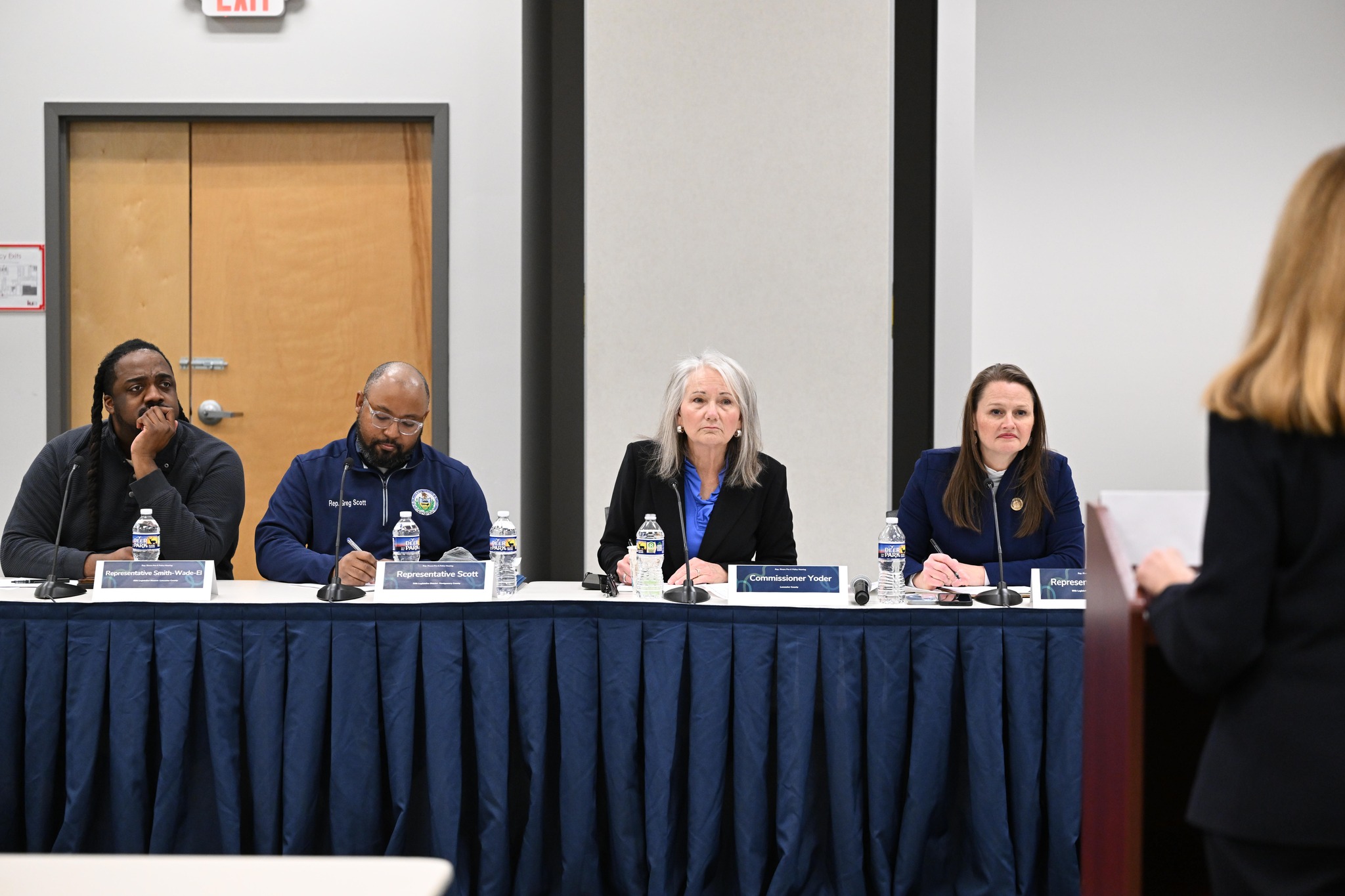Thursday, March 6, state Rep. Nikki Rivera, D-Lancaster, held a policy hearing at the Conference and Training Center at IU13 for people to learn about the impact pre-kindergarten education has on a student’s learning experience. The panel of listeners included Rivera as well as other state representatives, Deputy Secretary Shante’ Brown from the Office of Child Development and Early Learning and Commissioner Alice Yoder.
“After 30 years of teaching experience, there’s one big thing that I know is true: early investments in childhood education pay dividends for decades in a student’s life,” Rivera said. “You want a child with sharp cognitive and social skills, then you want to spend the money and the time making sure they get the holistic pre-K education they need to thrive during their formative years and beyond.”
The listeners heard from12 community testifiers including Lancaster-Lebanon Intermediate Unit 13, Community Action Partnership (CAP), Manheim Township School District, Lancaster Chamber of Commerce, Pennsylvania Child Care Association (PACCA) and T.E.A.C.H., School District of Lancaster, YWCA of Lancaster, Lancaster Recreation Commission, Hempfield School District and Owl Hill Learning, Pennsylvania School Librarians Association, TEACH +PLUS and Pennsylvania School Counselors Association.
Each testifier highlighted the importance of pre-kindergarten education, echoed each other’s stories, problems and solutions surrounding pre-kindergarten education. Each was allotted five minutes for speaking and three minutes for questions from the listeners’ panel.
Pre-kindergarten is not required for children in Pa., but as many testifiers pointed out, it helps to prepare students for a classroom environment. Teachers for pre-kindergarten are required to have the same teaching certifications as those teaching kindergarten through 12th grade while typically receiving a smaller salary.
Many of the organizations mentioned their struggles with retaining enough staff to run their pre-kindergarten programs. Meg May, director of community partnership for CAP, shared that they have had to close “Thrive to Five” locations due to staff shortages.
“Teachers are the backbone of making our programs successful. They build relationships that are integral to the growth and development of very young children, and they teach hands-on curriculum and build environments to allow all children to thrive.” May said.
PACCA and T.E.A.C.H. are working to address shortages by helping early childhood educators earn their degrees debt-free. Employers who have hired teachers through the program report a 95% retention rate, according to Laurie Litz, director of T.E.A.C.H. Early Childhood Pennsylvania.
Access to pre-kindergarten schooling also affects other employers. President and CEO of the Lancaster Chamber of Commerce, Heather Valudes, started by stating the more than 75% of employers said their employees have challenges finding childcare that coincides with the work schedules. Working families’ ability to work is severely diminished when they can’t find childcare that suits their needs, work schedule, route to work or is high quality.
The testifiers also touched on the importance of literacy and how it’s not just needed in the classroom. Dr. Sharon Schaefer, director of Curriculum and Instruction for the Lancaster school district, mentioned early literacy which includes developing skills such as vocabulary, phonics, and language that give students the foundation needed to learn and grow.
Matthew Good, Instructional Technology Librarian at Ursinus College and representative of the Pennsylvania School Librarians Association, told listeners that 54 school districts in Pa. Are without librarians. Providing schools and librarians with more resources, funding libraries and encouraging students to go to public libraries can contribute to a student’s literacy and learning.
Other testifiers focused on the social and emotional aspects to learning. Showing children classroom expectations and being prepared to socialize with a large group prior to kindergarten helps ease the transition into school.
Additionally, many noted how pre-kindergarten programs can flag challenges for students early on and help them get the intervention needed to be successful in the classroom. Finding and eliminating these challenges for students early on can prevent them from becoming larger obstacles and close gaps formed by lack of exposure to education.
“It’s on us — legislators, educational and municipal leaders — to work together so that all kids have a chance to get the educational foundation that will set them on the path to personal and academic achievement,” state Rep. Ismail Smith-Wade-El, D-Lancaster said. “Thanks to today’s presenters, we’ve got the information to help us draw a map to help us make pre-K education a reality for Pennsylvania’s kids.”
(Editors Note: This article was written by One United Lancaster editorial intern Ava Gates: Ava Gates is a current Elizabethtown College student studying Professional Writing and Journalism. She has a passion for writing, storytelling, and all things related to the arts. As an editorial intern for United Way of Lancaster County, Ava is excited to get more involved with the community and learn about local nonprofits’ work.)






